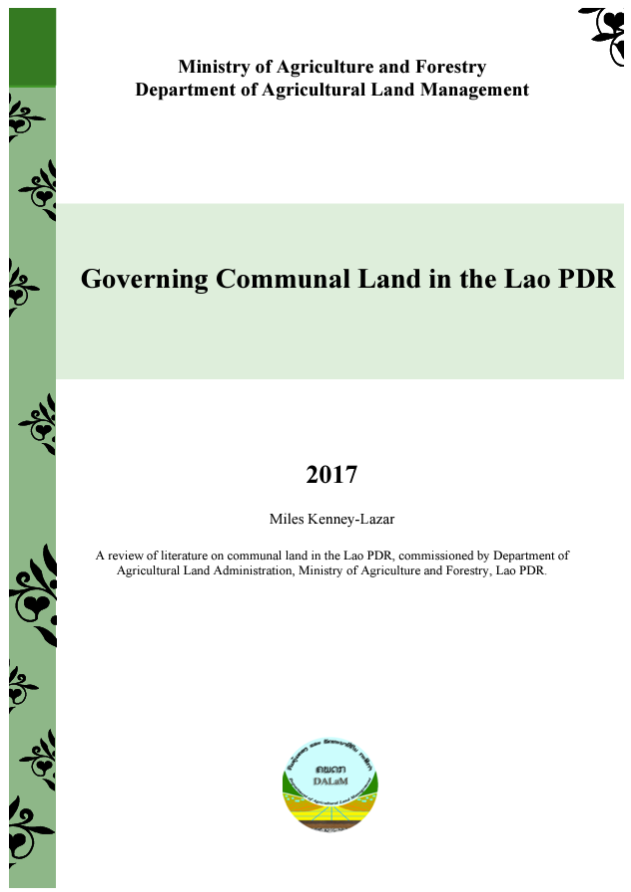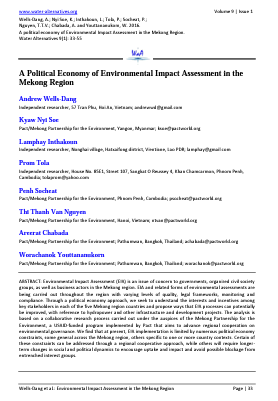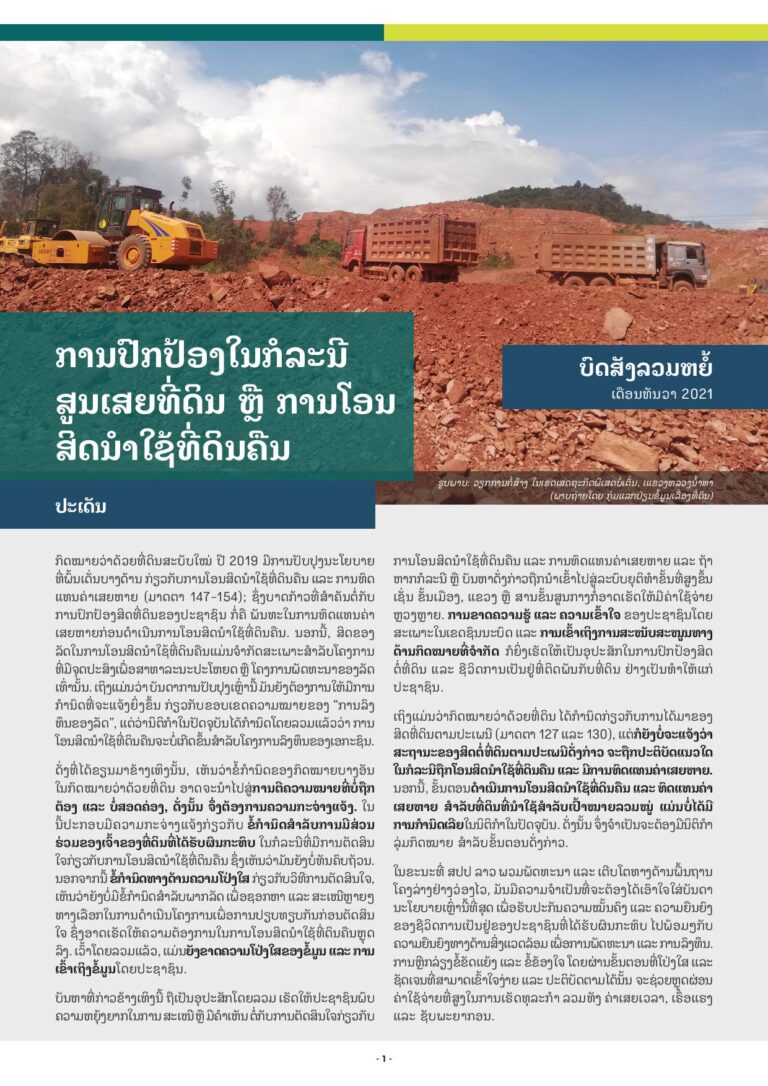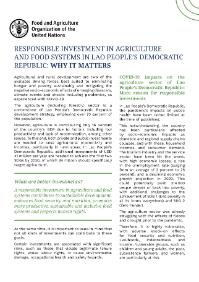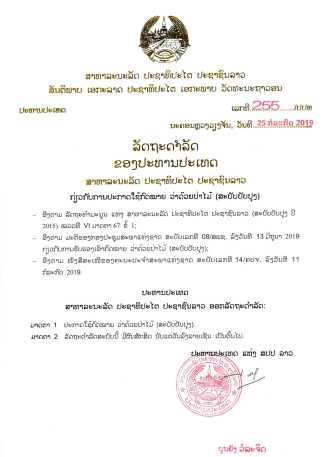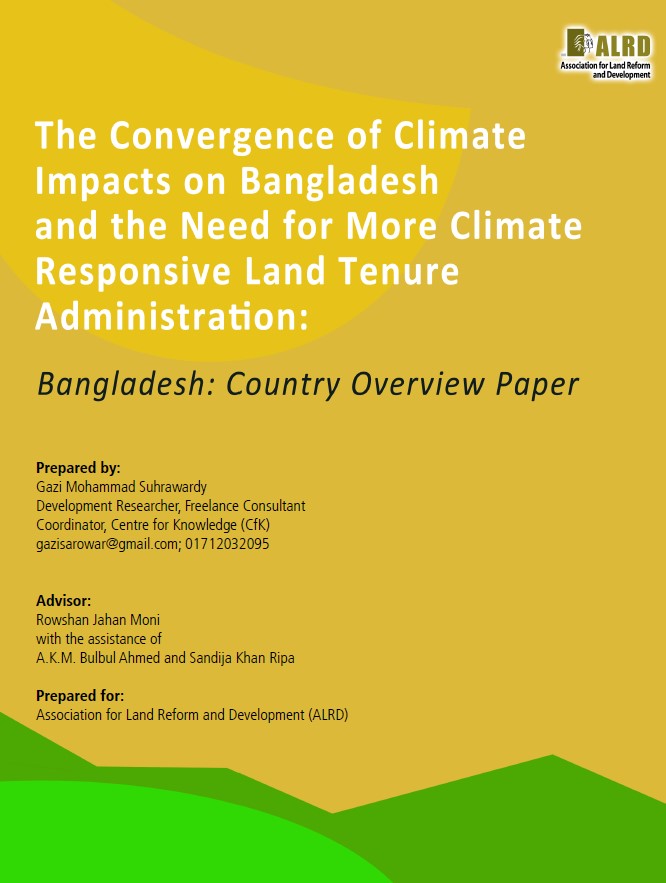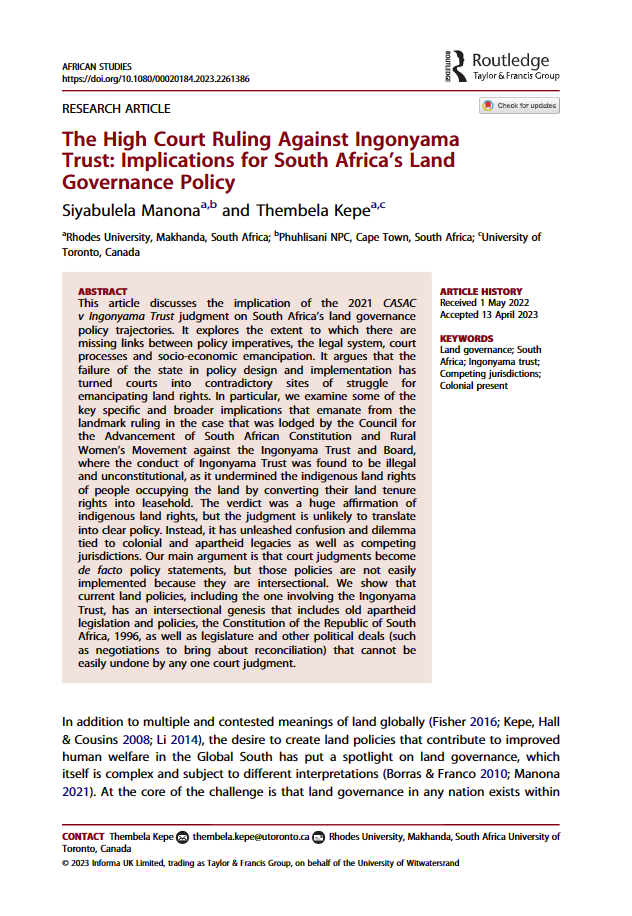
Topics and Regions
Landpages.co.ke is a medium of passing this message.
Details
Public Email
Location
Contributions
Displaying 161 - 170 of 740Governing Communal Land in the Lao PDR
A review of literature on communal land in the Lao PDR, commissioned by Department of Agricultural Land Administration, Ministry of Agriculture and Forestry, Lao PDR.
A Political Economy of Environmental Impact Assessment in the Mekong Region, Water Alternatives
Environmental Impact Assessment (EIA) is an issue of concern to governments, organized civil society groups, as well as business actors in the Mekong region. EIA and related forms of environmental assessments are being carried out throughout the region with varying levels of quality, legal frameworks, monitoring and compliance.
Safeguards in Cases of Land Loss or Expropriation
Through a collaborative process with the Land Law Advisory Group in Laos, this series of briefing notes addresses some of the most pressing issues in the country in relation to the recently passed Land Law (2019) and Forest Law (2019). The five briefs in the series address: tenure rights in state forestlands; customary tenure rights; tenure rights to land for collective purposes; awareness-raising for gender and social inclusive and safeguards in cases of land loss or expropriation.
Responsible investment in agriculture and food systems in Lao People's Democratic Republic: why it matters
The agricultural sector is a cornerstone of Lao PDR’s development strategy, employing over 70 percent of the population. However, agriculture is contributing only 16 percent of the country’s GDP due to factors including low productivity and lack of modernization, among other issues. To unlock the potential of agriculture to end poverty and hunger by 2030 and achieve the Sustainable Development Goals there is a need for more and better investment in agriculture.
Law on Resettlement and Vocation [Lao PDR]
This Law sets out principles, rules and measures regarding the supervision, inspection and monitoring of resettlement and vocation in order to enhance its efficiency, effectiveness, compliance, and to be consistent with locality condition and development to ensure Lao multi-ethnic persons who live in resettlement and vocational area have place to stay, place to earn a living and sustainable vocation which aim to solve illegal relocation problem, reduce poverty, improve livelihood of Lao multi-ethnic persons physically and mentally, develop social discipline, become development village and a
Laos Forestry Law (2019)
This law determines the principles, regulations and measures on management, preservation, development, utilization and inspection of forest and forestland, promotion of regeneration and planting, and increase of forest resources, aiming at enriching forests, increasing forest cover, making them as tourism resources, sustainable sources of living and use for the people, ensuring a sustainable condition and protection of soil, climate, water resources, biodiversity, environment in compliance with green and sustainable growth directions, as well as contributing to national socio-economic devel
Decree on the promulgation of the amended land law, 2019
This decree divides into 15 sessions and consists of 188 articles. This law sets out the principles, regulations, measures on the management, monitoring of land works aiming to improve the lives of the people.
Bangladesh Country Overview Paper on Climate Change and Land Tenure Rights
This country overview paper offers a perspective overview of climate change and land tenure rights in Bangladesh. It provides a review and analysis of how the official climate responses and those of other stakeholders impact on the land tenure, use and rights of people. Lastly, it discusses the emergent impacts/implications of climate change on land tenure rights, land use systems and governance.
In undertaking the above discussions, the paper has brought into particular focus the socio-economic issues of poor, marginalized, and at-risk sectors.
The High Court Ruling Against Ingonyama Trust: Implications for South Africa’s Land Governance Policy
This article discusses the implication of the 2021 CASAC v Ingonyama Trust judgment on South Africa’s land governance policy trajectories. It explores the extent to which there are missing links between policy imperatives, the legal system, court processes and socio-economic emancipation. It argues that the failure of the state in policy design and implementation has turned courts into contradictory sites of struggle for emancipating land rights.
The dangerous rise of Land Grabbing through Climate Change Mitigation policies: the examples of Biofuel and REDD+
This paper seeks to investigate the interconnections between climate change and land grabbing. It offers a nuanced understanding of the critical intersections of climate change mitigation policies with land grabbing, before and after the Paris Agreement. There are various considerations associated with climate change that drive land grabbing tendencies. This increase of land grabbing has been observed to exacerbate climate change and the recurrence of strategies that produce harmful effects on socio-ecological systems.

